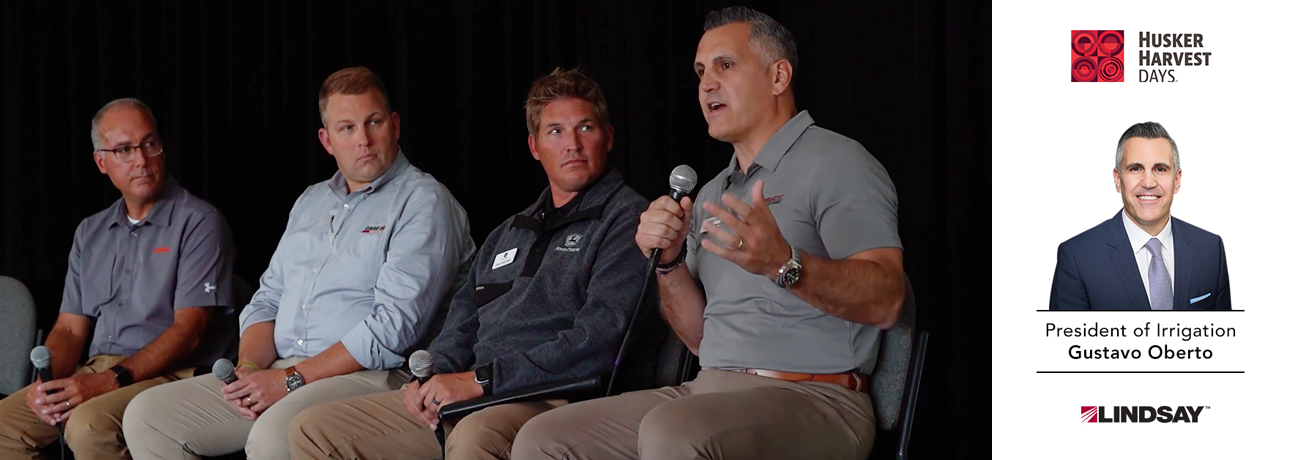Zimmatic Blog
How New Agriculture Technologies Lead to Sustainable Farming, Better Yields
Oct 11, 2021

New irrigation technologies not only are helping farmers produce better yields and manage their fields more efficiently, but they’re also contributing to more sustainable farming practices.
Nebraska Governor Pete Ricketts recognized Lindsay’s work to advance sustainable farming earlier this fall during the Husker Harvest Days expo.
Ricketts named Lindsay as one of the companies “at the forefront of innovation - finding new ways to use digital technologies to efficiently apply water to crops” in opening remarks at a forum featuring leaders in agriculture technology.
Such technologies have helped Nebraska farmers maintain water levels within 1-foot of 1950s levels while other states have drastically drawn down their water resources, Ricketts said. He highlighted Lindsay’s smart pivot -- which uses technology to monitor crop and machine health -- as one example of such technology, as well as Lindsay’s FieldNET remote management platform, which analyzes data and makes irrigation recommendations.
“Technologies like these are one of the reasons Nebraska has been able to manage our water resources well,” Ricketts said.
‘More With Less’
During the panel discussion on next-generation equipment, Gustavo Oberto, Lindsay’s president of global agricultural irrigation, offered his insights into how irrigation technology can contribute to sustainable farming, conservation and food security.
Lindsay’s smart pivot and FieldNET platform have created more value for farmers by improving how they monitor fields and equipment and make choices about how to manage their irrigation practices, Oberto explained. Such advancements have led farmers to use less water and energy. At Lindsay, precision agriculture “means doing more with less,” Oberto said.
The COVID-19 pandemic has underscored the importance of sustainable farming practices and how technology can aid farmers, Oberto said. When transportation lines ground to a halt and international borders closed as a result of the pandemic, countries that import food faced shortages. Those disruptions showed how new agriculture technologies can not only produce better yields but also conserve resources. “We need technology to step in and help us stretch those resources and make us more efficient,” Oberto said.
But amid the challenges of labor shortages and supply chain issues, Oberto sees opportunity.
“Sometimes the best innovations come from constraints,” Oberto said.
Check out Lindsay’s irrigation innovations and speak to our team of experts during the Sunbelt Ag Expo in Moultrie, Georgia, from Oct. 19 - 21.